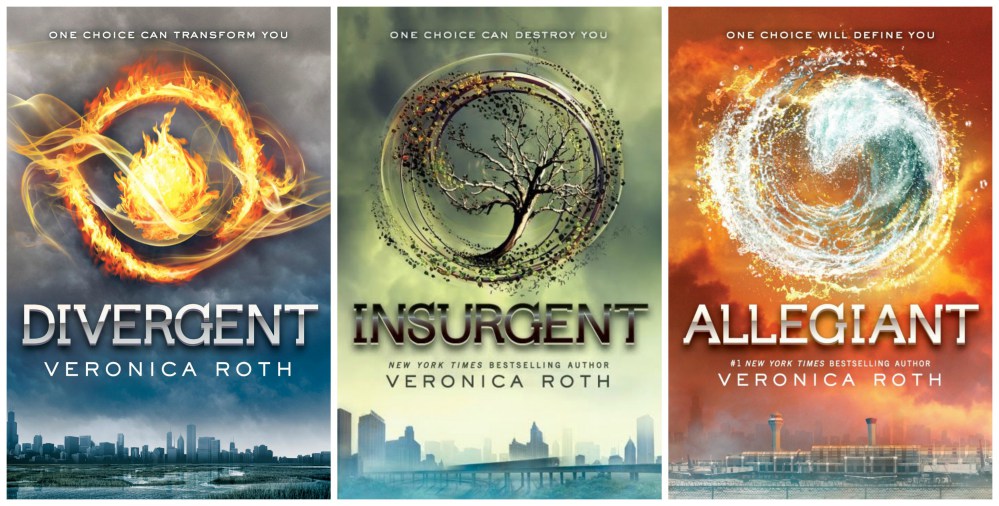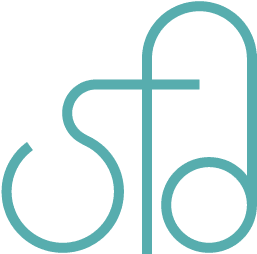Divergent Series
The Divergent series is a good series in my opinion. It took me a while to finish reading it, just because Allegiant was hard to keep reading somehow. It was worth finishing, though it has left me sad yet content at the same time. I first learned about the series when I watched Divergent, the movie, with my roommates, after watching Hunger Games. Somehow that intrigued me moreso than Hunger Games, so I bought the series to read. There are a lot of quotes and themes that I like, and it has an interesting story-line. There are people who think otherwise, and that’s fine. Instead of giving a summary of each book in its own review, I decided to review the entire series at once, and not go into summarizing, mainly focusing on the theme, and what I like about it. It’s a series that requires reading the entire series to get the full story, and they should be read sequentially: Divergent, Insurgent, then Allegiant.

Brief overview
The Divergent series is written by American novelist Veronica Roth. It’s a science fiction post-apocalyptic dystopia young adult novel series. The main protagonist is Beatrice Prior. She is addressed as Tris for most of the story. The setting is in Chicago sometime in the future. In this society, people are separated into five factions, each having a role in contributing to the betterment of their society. The factions are Abnegation, for the selfless; Amity, for the peaceful; Candor, for the honest; Dauntless, for the brave; and Erudite, for the intellectual.
Themes
Identity of oneself
Tris has trouble identifying herself as Abnegation or Dauntless, before the Choosing Ceremony, during it, after it, and throughout Divergent. Even in Allegiant, after learning more, Tris and others are faced with questioning their identity again. Throughout our lives, we also go through this, as we learn more about the world we live in, as we learn more about ourselves and others.
"One Choice
One Choice, decided your friends.
One Choice, defines your beliefs.
One Choice, determines your loyalties – Forever.
ONCE CHOICE CAN TRANSFORM YOU"
When Tris finally has some understanding of what divergent is, she begins to find her identity. Later she realizes, identity is more than just that. It isn’t just the faction, each person is more than that.
"I feel like someone breathed new air into my lungs. I am not Abnegation. I am not Dauntless.
I am Divergent."
Even choosing a nickname for herself is identity related to her, and she takes it as an opportunity to be made into someone she wants to become.
"Um…" I don’t know why I hesitate. But "Beatrice" just doesn’t sound right anymore.
"Think about it," he says, a faint smile curling his lips. "You don’t get to pick again."
A new place, a new name. I can be remade here.
"Tris," I say firmly.
Selflessness + bravery
It’s interesting that Tris is both Abnegation (past), the faction with an emphasis on selflessness, and Dauntless (present), the faction with an emphasis on courage. When both are combined, you come to realize they are congruent with one another. This is a theme I like from the series, one that reminds me of how the fruit of the Spirit is multiple character aspects that are congruent with one another. If you have one aspect and not the other, it becomes counterfeit.
"Eric called Al’s suicide brave, and he was wrong. My mother’s death was brave. I remember how calm she was, how determined. It isn’t just brave that she died for me; it is brave that she did it without announcing it, without hesitation, and without appearing to consider another option."
The motive here is key to understanding true bravery. Tris’ mother died bravely because she sacrificed herself to save her daughter. Al’s suicide is not brave because he did so to end his own misery, for his own purposes, not for others.
"…there is power in self-sacrifice."
Tris’ mother’s self-sacrifice is ingrained in Tris, and helps shape her as she walks in her mother’s footsteps. It takes a while for her to understand, that it isn’t just about throwing one’s life away. It’s doing so out of love and necessity, only when the time is right.
"I have a theory that selflessness and bravery aren’t all that different."
In Abnegation, you are taught to forget yourself, to help others and put their needs and wants before your own. In Dauntless you’re taught to be brave, to forget yourself and your fears, in order to protect those you love. In both cases you’re taught to put others before yourself.
Guilt + blame
This theme is prevalent throughout the series. Tris, or someone else, experiences a sense of guilt for something, and actions are affected by it. This book explores motives for actions a lot, and how they matter.
"But I have to see my parents one more time. I look over my shoulder at the last second before I pass them, and immediately wish I hadn’t. My father’s eyes burn into mine with a look of accusation. At first, when I feel the heat behind my eyes, I think he’s found a way to set me on fire, to punish me for what I’ve done, but no—I’m about to cry."
Tris feels a strong sense of guilt for leaving her family’s faction. She can feel her father’s eyes burn into hers with a look of accusation. Whether or not this is actually the case, her sense of guilt is punishing her for the decision she made.
"Somewhere inside me is a merciful, forgiving person. Somewhere there is a girl who tries to understand what people are going through, who accepts that people do evil things and that desperation leads them to darker places than they ever imagined. I swear she exists, and she hurts for the repentant boy I see in front of me. But if I saw her, I wouldn’t recognize her."
Here, a different character, Al, is experiencing guilt for something he has done to Tris. This is Tris’ reaction to the situation. She can’t bring herself to forgive him.
"’Maybe. Maybe there’s more we all could have done,’ he says, ‘but we just have to let the guilt remind us to do better next time.’
I frown and pull back. That is a lesson that members of Abnegation learn—guilt as a tool, rather than a weapon against the self. It is a line straight from one of my father’s lectures at our weekly meetings."
Tris is learning in this instance to not just let guilt be a punishment for what she has done, but as a way to grow and do better next time.
"I press my forehead to the wall and scream. After a few seconds I clamp my hand over my mouth to muffle the sound and scream again, a scream that turns into a sob. The gun clatters to the ground. I still see Will.
He smiles in my memory. A curled lip. Straight teeth. Light in his eyes. Laughing, teasing, more alive in memory than I am in reality. It was him or me. I chose me. But I feel dead too."
This is a crucial point in the story. This incident leads Tris to behave differently, and she is driven by guilt to do whatever it takes to rid herself of it, by risking her life recklessly, putting herself in danger unnecessarily.
Other
Other themes include forgiveness which goes hand-in-hand with guilt + blame. For one person to do wrong to another, that other person has the option to forgive. In many cases in the series, forgiveness is difficult. Tris struggles with it, as do other characters. Some characters are able to forgive over time.
Motives is another theme in the series. Because this series delves into internal dialog a lot, you’re able to see into people’s heart, especially Tris and Four, and see their motives for doing what they do. Their motives are important.
This series also explores different types of relationships including family, friends, enemies, and significant others. It explores what makes a good relationship. It also delves into ethics, especially in the last book, Allegiant.
Also an interesting point Veronica Roth makes is, while she was writing, as she was creating this world, it started as though she were writing a Utopia, of what kind of world she would want, but it turned into dystopia; but then she mentions, perhaps this is what human made Utopias would be like. We don’t know how to make a Utopia, a perfect world, because we do not know perfection. As humans, we can never achieve perfection.
